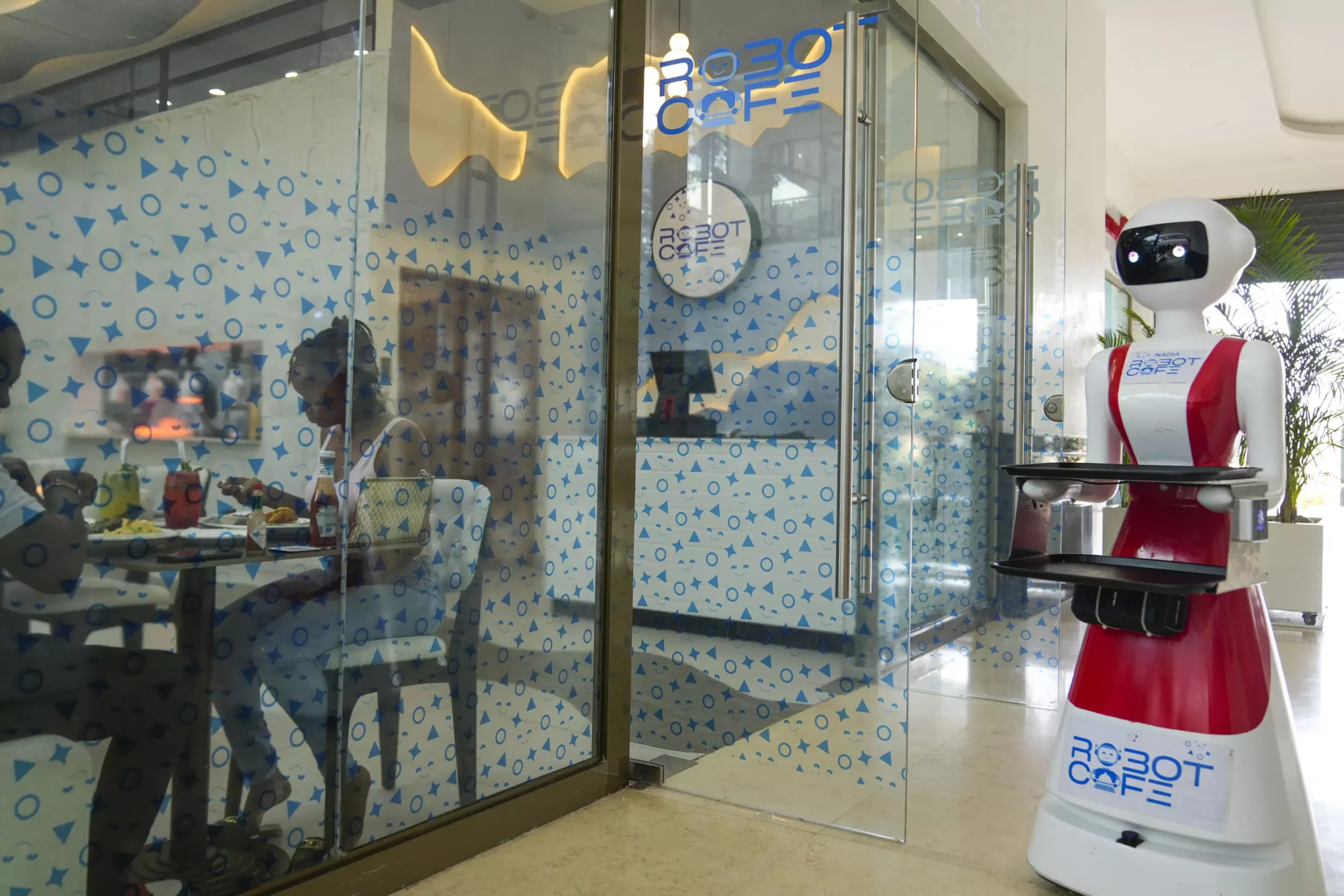In the bustling capital of Kenya, Nairobi, a new trend is taking the restaurant industry by storm. The Robot Cafe has made headlines for its innovative use of technology in serving customers. With three preprogrammed robots roaming among human waiters, the cafe offers a unique and futuristic dining experience that has captivated the local population, especially children.
Owned by Mohammed Abbas, the Robot Cafe features robots named Claire, R24, and Nadia who glide among customers carrying plates of freshly prepared meals. These robots, imported from Asian and European countries, were a significant investment for Abbas. However, the decision has paid off, as the cafe sees a steady stream of curious customers eager to witness the robotic service in action.
While the robots add a touch of novelty to the dining experience, human waiters still play a crucial role in the cafe’s operations. They take orders from customers who prefer a more traditional approach and interact with patrons to provide a personal touch that robots cannot replicate. According to the cafe’s manager, John Kariuki, the robots are not a full replacement for human waiters due to their limitations in offering a comprehensive range of services.
As the use of robotics in service industries becomes more prevalent, questions arise about the impact on human labor. Edith Ojwang, a hospitality industry expert, believes that there is room for both robotic and human service to coexist harmoniously. While some customers may prefer the efficiency and novelty of robotic service, others value the warmth and personalized touch that human interaction brings to the dining experience.
Despite the success of the Robot Cafe, challenges remain in incorporating robotic service into the hospitality industry. The high cost of acquiring and maintaining robots poses a financial burden for businesses, making it necessary to carefully weigh the benefits against the costs. Additionally, concerns about job displacement arise as automation threatens to change the landscape of the workforce.
The Robot Cafe in Nairobi serves as a testament to the growing intersection of technology and hospitality. While the use of robots adds a modern twist to the dining experience, human waiters continue to play an essential role in providing a personalized touch to customers. As the industry evolves, finding a balance between robotic and human service will be crucial in meeting the diverse needs of patrons. The rise of robot service in Nairobi may herald a new era in the hospitality sector, blending innovation with tradition to create a dynamic and engaging dining experience for visitors and locals alike.

